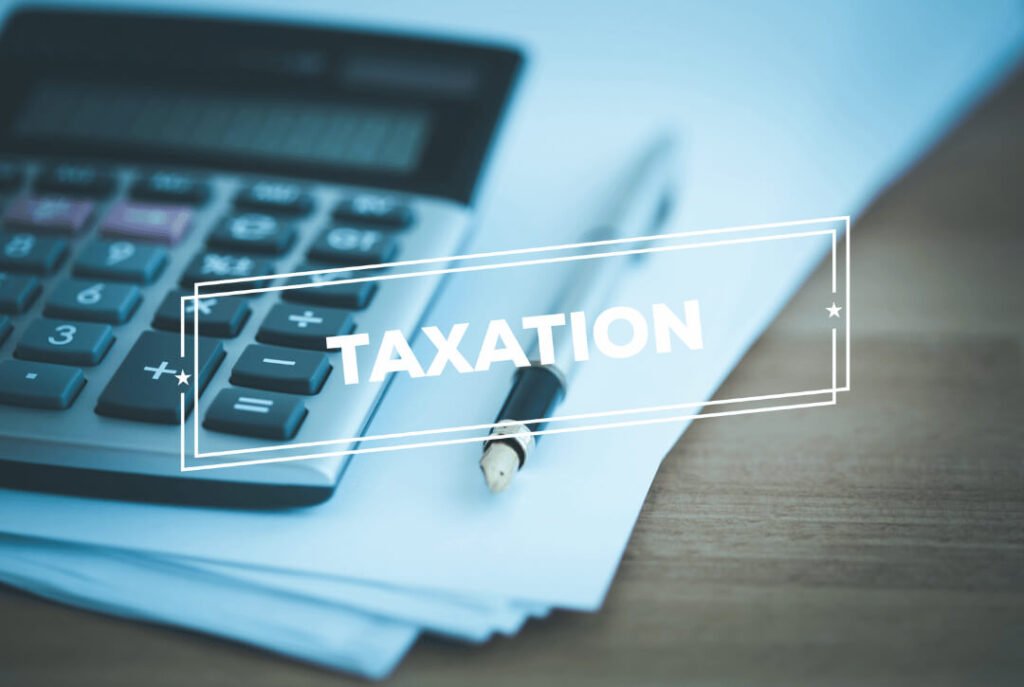Taxation
- HOME
- TAXATION
Taxation in India
To ensure smooth governance, the government collects taxes from eligible citizens. Paying taxes to the government is a fundamental responsibility for everyone, regardless of where we live.
Taxes can come in various forms, including state taxes, central government taxes, direct taxes, and indirect taxes. For simplicity, we’ll categorize taxes in India into two main types: direct taxes and indirect taxes, based on how they are paid to the government.
What is Tax and Its Types?
A tax is a required fee or charge that the government collects from individuals or organizations to fund public works, infrastructure, and essential services. This revenue is then used to support a variety of public programs.
If someone fails to pay taxes or refuses to comply, they may face serious legal consequences.
Income Tax Calculator
Types of Taxes
All individuals and businesses are required to pay taxes in various forms, which are divided into direct and indirect taxes according to the way they are paid to the authorities.
Now that you understand the concept of taxation, let’s take a closer look at these two types:
- Direct Tax
- Indirect Tax
Recent Reforms in Taxation
In 2017, the government introduced the Goods and Services Tax (GST), marking one of the most transformative tax reforms in independent India. Previously, different state and central taxes applied to various goods and services, creating a complex system that sometimes allowed individuals to exploit loopholes.
With GST, more people were brought into the tax system, making it harder for tax evaders to bypass their obligations.
Articles Related to Tax
- Income Tax Act
- Income Tax Online Payment
- Income Tax Return
- Filing Due Date for Income Tax Returns
- Tax Deducted at Source (TDS)
- Income Tax Slabs
What is Income Tax?
Income tax is the most common type of tax that citizens pay to the government. Each year, a portion of an individual’s income is paid as tax, which the government uses to fund national growth and development.
Income Tax Assessee
Anyone who falls within the income tax threshold and is required to file taxes is known as an income tax assessee. Those whose income is below the threshold or from exempted sources, like agriculture, are not required to pay income tax.
Income Tax Slabs
Income tax is based on a slab system, where individuals with higher incomes pay a higher tax rate. This structure is designed to make tax rates fair and proportional to income levels.
Income Tax Deductions
For individuals with a taxable income over ₹2.5 lakhs, tax-saving options like ELSS, Mutual Funds, PPF, EPF, and tax-saving fixed deposits under sections 80C and 80D of the Income Tax Act, 1961, can help reduce their taxable income.
Tax Deducted at Source (TDS)
TDS, or Tax Deducted at Source, is a common way for the government to collect taxes, especially from salaried individuals. TDS is also deducted from other forms of income, such as interest on fixed deposits, and refunds can be claimed through Income Tax Return (ITR) filing.
You May Also Be Interested to Know
Tax Evasion Laws and Implications
India’s tax laws have specific provisions to prevent tax evasion, and all citizens are required to follow these rules. Penalties and actions are in place for those who fail to comply with tax regulations.
Paying taxes is essential for all citizens, as it supports the growth of the country by funding services and facilities. There are many types of taxes, such as GST, VAT, property tax, service tax, sales tax, and entertainment tax, all of which contribute to government revenue.


